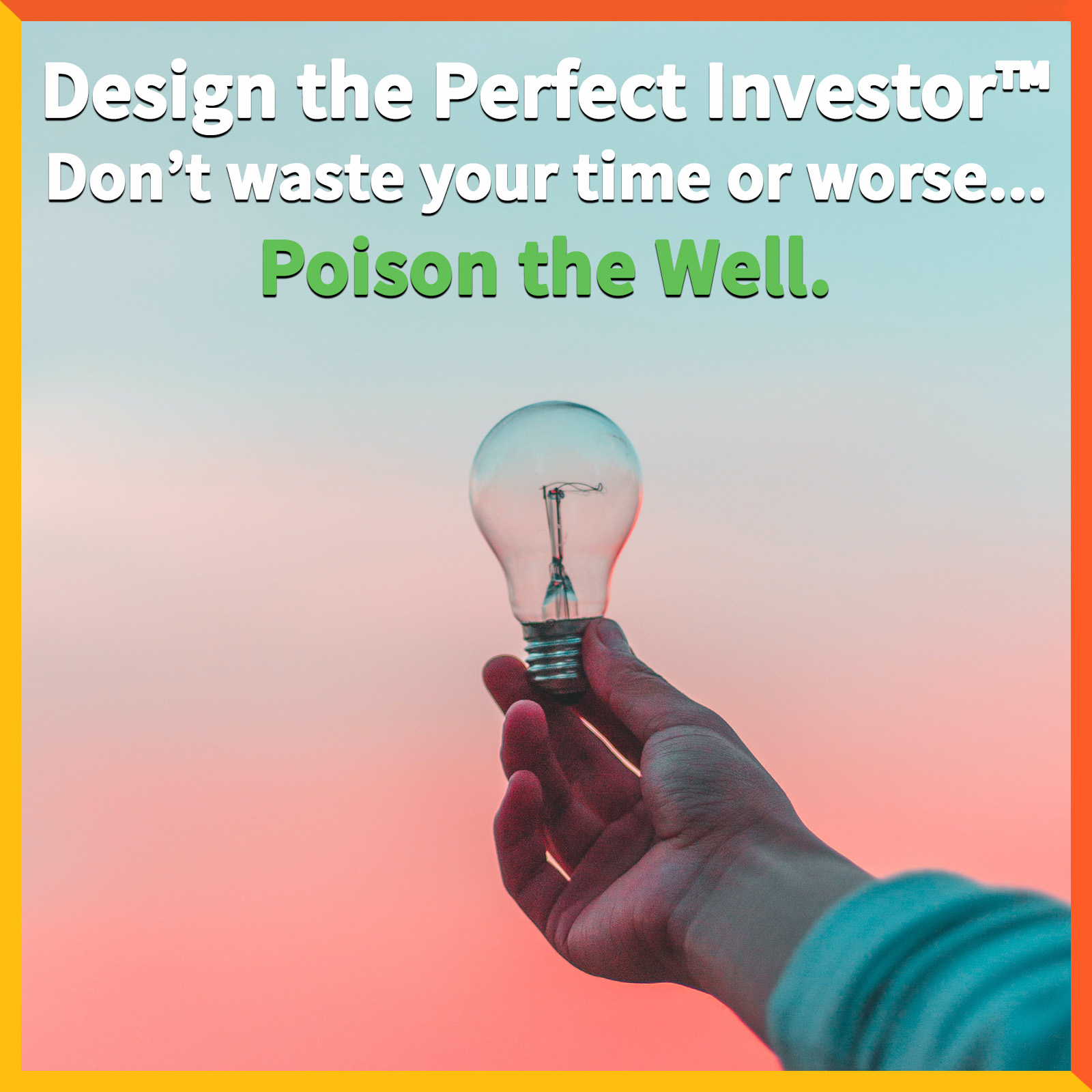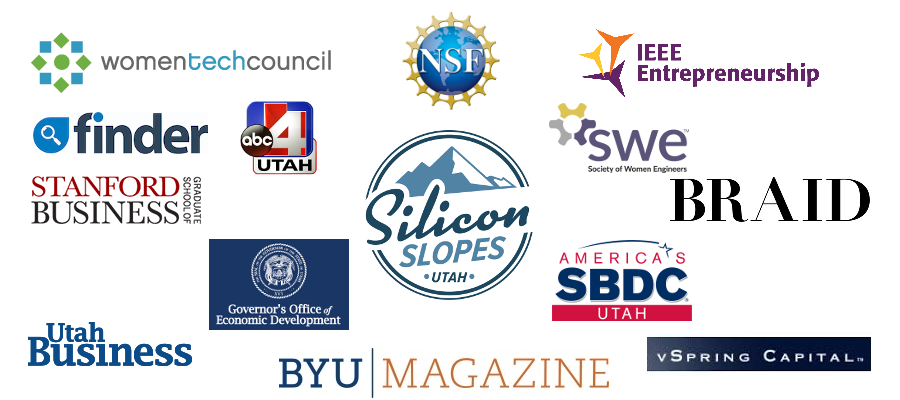 A couple of years ago, I wrote a post on accelerators called “Are Startup Accelerators Adding Value? Be Sure Before You Join One….” because I was surprised 1) at the number of entrepreneurs I heard from who had participated in an accelerator and who had been disappointed and 2) once I went looking, I was surprised at the poor performance that accelerators were delivering.
A couple of years ago, I wrote a post on accelerators called “Are Startup Accelerators Adding Value? Be Sure Before You Join One….” because I was surprised 1) at the number of entrepreneurs I heard from who had participated in an accelerator and who had been disappointed and 2) once I went looking, I was surprised at the poor performance that accelerators were delivering.
I just finished coaching our 2024 VentureWrench Launch! cohort and was surprised (still) at how many teams likewise were critical of past accelerator experiences. So this latest news was too much and I had to write about it.
Some excerpts from that earlier post summarized the bad news (but be sure to read the original post for more juicy insights!):
“According to recent research, less than half of alumni from top accelerators had raised at least $750,000 within 12 months of graduating, and, for most accelerators, that rate was less than quarter. In addition, fewer than a third of the accelerator alumni had raised at least $750,000 with at least one institutional investor within that first year.”
More bad news from the original post:
“A recent Forbes blogpost, which was quite optimistic about accelerators, admitted that only about 10% of alumni of the top three global accelerators have had successful exits and the success rate drops to one to two percent when looking at the track record of the Top 10 global accelerators. ”
There is more bad news this month! And frankly, it’s horrifying (for entrepreneurs).
This from Techcrunch:
“They thought they were joining an accelerator — instead they lost their startups
(How Newchip’s bankruptcy threatened the cap tables of thousands of startups).”
 Here’s the high level summary. The Founder/CEO, Andrew Ryan, started the Austin-based Newchip Accelerator in 2016 after spending more than seven years as an Austin city commissioner. Employees staged a walkout in early May 2023 because of gripes with how Ryan was running Newchip, and because of many (many) founder complaints. Founders complained that fees (up to $20k) were too high and weren’t refunded if Newchip didn’t follow through, and that often it did not follow through. In particular, many entrepreneurs joined so that they could get introductions to investors!! (see notes at the end for some alternatives). Newchip filed for bankruptcy just a few weeks after the employee walkout in May 2023.
Here’s the high level summary. The Founder/CEO, Andrew Ryan, started the Austin-based Newchip Accelerator in 2016 after spending more than seven years as an Austin city commissioner. Employees staged a walkout in early May 2023 because of gripes with how Ryan was running Newchip, and because of many (many) founder complaints. Founders complained that fees (up to $20k) were too high and weren’t refunded if Newchip didn’t follow through, and that often it did not follow through. In particular, many entrepreneurs joined so that they could get introductions to investors!! (see notes at the end for some alternatives). Newchip filed for bankruptcy just a few weeks after the employee walkout in May 2023.
Well, if you’ve paid cash to your accelerator and it goes under, (and according to the founder it’s Chapter 7), your cash is gone, call it a lesson learned and move on.
HOWEVER, former Newchip accelerator clients were about to get dramatically worse news than a few thousand lost dollars.
The bankruptcy court has since ordered the auctioning off of warrants of more than 1000 companies which had granted them to Newchip as part of the cost of participating in the accelerator.
According to the Newchip founder, in a 2023 LinkedIn post, “We hold approximately 5,000 of these warrants, with an estimated face value upwards of >$1 billion dollars (5,000 x $250,000), that’s not including growth, i.e. future rounds, or failed companies. ”
Most warrants, especially in private companies, have various clauses that allows the startup to control which investors can buy shares and at what price, in order to protect the cap table. Unfortunately for these Newchip entrepreneurs, the bankruptcy court is responsible to creditors, not to equity holders, or the startups!
To the bankruptcy court, all those potentially juicy warrants are simply assets, assets that have to be converted to cash to pay off creditors. AND, the court isn’t permitting the Newchip startups to control anything.
Tranche’s of the warrants are being auctioned off during spring and summer 2024.
Founders are outraged. But, if you’re a founder, why do you care? Newchip holds your warrants or someone else holds them, how does it impact you? Turns out, potentially catastrophically.
It turns out the warrants are being sold for very, very cheap! And founders are finding out that it could completely destroy future valuations.
And potential investors also see that unknown, and uncontrolled investors, own warrants on your cap table. Not so neat and tidy now, is it? And these new warrant holders undermine the entire cap table discipline that angel and VC’s want to see.
One founder interviewed by Tech Crunch said that even a potential grantor (an organization set to provide a grant) to her sustainability startup was so disturbed by these unknown warrant holders, that they pulled the grant.
She had to acknowledge that she would likely never be able to raise capital, and shut down her startup.
Other founders also shut down because of these issues with Newchip. Founders whose warrants were sold in the first tranche, had the opportunity to object, but those objections were apparently all overruled. Three tranches of auctions are scheduled. According to reports, the first group included warrants for 133 companies, which had raised a combined of $340 million in funding.
 The sales agent reported selling warrants for an estimated $58,000. That is apparently at a significant discount. Several companies apparently bought their own warrants back under a pre-arrangement, but it meant they had to have cash to send to the court!). In addition, according to TechCrunch, Palm Ventures and Angel Deal Syndicate bought the bulk of the warrants, apparently $43,000 worth of warrants in 24 companies. They may (or may not) be “friendly” investors, but clearly all of the founders in these companies have lost the ability to manage their investors, and future investors are going to be very reluctant to pay more attractive valuations than these interloper investors.
The sales agent reported selling warrants for an estimated $58,000. That is apparently at a significant discount. Several companies apparently bought their own warrants back under a pre-arrangement, but it meant they had to have cash to send to the court!). In addition, according to TechCrunch, Palm Ventures and Angel Deal Syndicate bought the bulk of the warrants, apparently $43,000 worth of warrants in 24 companies. They may (or may not) be “friendly” investors, but clearly all of the founders in these companies have lost the ability to manage their investors, and future investors are going to be very reluctant to pay more attractive valuations than these interloper investors.
Again, companies that I coach have told me that their work with me is so much more valuable than their past accelerator experiences. Why? They give me lots of reasons, but the truth is, it’s hard to institutionalize the creative and interpersonal work needed to help a startup accelerate its progress. Read the original post “Are Startup Accelerators Adding Value? Be Sure Before You Join One….” to see the stats writ large. Read the Tech Crunch reporting on the Newchip debacle to see more on the personal toll on founders, and then be very, very careful before you join an accelerator.
That said, you know I think it is important that you should not try and raise capital without expert advice.
When we raised our first round for our first startup “back in the day”, there was still some room for error in the private capital markets. That is not true today. Mess up, pitch to the wrong investor, have a bad pitch day, and you may poison the well, permanently.
 We offer our “Designing the Perfect Investor™” course, either in an online version, or with one on one coaching, to get you the insider information you need to improve your odds of fundraising success. Because a perfect investor already wants what you have to offer! As part of our coaching community, we offer the InvestorFind™ service which provides a list of potential investors who match the “Designer Investor” profile for our client’s business. The great news about our programs, for less than the cost of one failed trip to the wrong investor, you’ve got the inside scoop to help you succeed.
We offer our “Designing the Perfect Investor™” course, either in an online version, or with one on one coaching, to get you the insider information you need to improve your odds of fundraising success. Because a perfect investor already wants what you have to offer! As part of our coaching community, we offer the InvestorFind™ service which provides a list of potential investors who match the “Designer Investor” profile for our client’s business. The great news about our programs, for less than the cost of one failed trip to the wrong investor, you’ve got the inside scoop to help you succeed.

